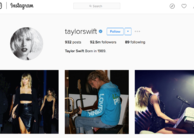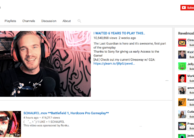A.J. Green began his football career at Summerville High School in Summerville, South Carolina. He was an extremely productive wide receiver, and would go on to play at the University of Georgia, where he continued to dominate the competition and produce gaudy stats. Green’s career at Georgia was marked by numerous accolades, including being named First-team All-SEC on two separate occasions and the SEC freshman of the year in 2008.29 Before leaving Georgia, however, Green’s sterling career was marked by an improper benefit scandal.
Following rumors in 2010 that he had received improper benefits at a Miami party that was already being examined, the NCAA launched an investigation and questioned Green regarding the accusations.
While examining Green’s bank account, the NCAA noticed a $1,000 deposit that seemed largely out of place. Although Green denied attending the Miami party in question, he was forthcoming about the deposit and admitted to selling his game-worn 2009 Independence Bowl jersey for extra cash to spend on Spring Break. Although the amount in question was far less than with “Tattoo gate,” the scandal received a large amount of media scrutiny due to Green’s success and the growing debate regarding compensation for high-profile college athletes. While the NCAA handed down a four-game suspension for the infraction, Green and the University aimed to handle the scandal effectively.
On September 8th, 2010 A.J. Green released a statement through the University of Georgia in response to the four-game suspension the NCAA handed him for selling his jersey. The brief statement can be found below:
I want to apologize to my coaches, teammates, and the Georgia fans for the mistake in judgment. I very much regret all that has taken place and the distraction that’s been caused. I’ve learned a valuable lesson and hope others can learn from my mistake. I can only focus my attention now on practicing and looking ahead to getting back with my teammates as quickly as possible.
Green’s use of image restoration strategies is easily identifiable in this formal statement. He clearly utilizes both mortification and corrective action. He apologizes for his actions, acknowledges his lapse in judgment, and takes responsibility for the negative repercussions he caused. With this out of the way, Green was then able to shift the focus towards the future. He assures personal corrective action by noting that he has learned his lesson and is ready to move past the scandal by re-focusing on his football career. Much like Terrelle Pryor, however, Green had more to say about his actions once the scandal was behind him.
Having served his four-game suspension by the end of September, Green spoke out again regarding his scrutinized actions. While he employed similar strategies to those used in his initial statement, Green was also able to speak more openly about his experience with the scandal. He began by expressing mortification regarding his actions:
|
Strategies
|
Quotes
|
|
Mortification
|
“I broke the rule, and I paid my price. And I’m just ready to play again.”
“I feel like I caused a lot of people pain. Because I feel like if I was out there some of the time we would have had a chance. I beat myself up pretty much over that.”
“I did something wrong. I deserve it, a penalty for what I’d done.”
|
Much like in his initial statement, Green takes full responsibility for his actions and acknowledges their repercussions. He attempts to distance himself slightly from the scandal by adding that “everybody makes mistakes in life” and “I’m not the type of guy who ever got into trouble here and stuff like that.” The former quote marks a use of minimization, while the latter is a bolstering of his personal character. Both methods aim to subtly reduce negative sentiments towards his character and past actions. After taking responsibility for his actions and attempting to distance himself from them, Green then turned to his familiar use of corrective action:
|
Strategies
|
Quotes
|
|
Corrective Action
|
“It taught me a valuable lesson. I’m growing up, and I’ve got to do the right thing.”
“I feel like I still got stuff to prove, that I’m behind and that I’m going to have a lot of catching up to do.”
|
Both of these statements shift the focus of Green’s statement toward the future. He emphasizes a change in his personal character and recognition of right versus wrong. In this way, he assures the audience that he is taking the steps necessary to avoid being involved with a similar scandal down the line. Following this interview, the scandal eventually faded from the spotlight, while Green exploded onto the NFL scene as a wide receiver with the Cincinnati Bengals.
Cam Newton’s road to stardom was, and continues to be, a long and tumultuous one. Hailing from Westlake High School in Atlanta, Georgia, the quarterback opted to attend the University of Florida. After transferring from Florida and attending Blinn Colleg for a year, Newton chose to attend the 2010 season at Auburn University, where he produced historic results and carried himself to an unparalleled level of national popularity. His accomplishments in a single year at Auburn are simply staggering, and provide perspective on his celebrity-like status. Newton led his team to a National Championship, received the storied Heisman
Trophy award, was named a consensus All-American, and was also named the Associated Press player of the year, along with countless other awards and accolades.33 Despite his impressive athletic feats, Newton’s illustrious career at Auburn was marred by a high-profile scandal regarding his recruitment to the University.
In November of 2010, during Newton’s historic campaign at Auburn, reports began to emerge of an ongoing NCAA investigation regarding his recruitment to the University.34 35 The reports alleged that Newton’s father, Cecil, had solicited large amounts of cash from universities in exchange for his son’s commitment to play with their program the following season. The investigation quickly zeroed in on Mississippi State University when a recruiter alleged that Cecil Newton had told him it would cost between $100,00 and $180,000 to have his son play for their program.3637 Although Newton was suspended for the infraction, he was quickly reinstated when the University stated that he was entirely unaware of the actions of his father and that he had no personal intentions of utilizing an agent to solicit payments for his decision. The NCAA’s extensive investigation supported these statements, finding that neither Cam nor Auburn University had engaged in solicitation efforts; only Cecil was found to be guilty of the accusations. Despite the fact that Newton emerged from the scandal without repercussions and went on to punctuate his successful season, his alleged involvement with the scandal sparked intense media scrutiny. Due to his popularity and the continued scrutiny of improper benefit scandals at the time, Newton and the University were forced to acknowledge and respond to the scandal accordingly.
Newton’s situation was unique in that he was not actually found guilty of any infractions by the NCAA and thus faced no tangible repercussions. Newton, his father, the University, and other associated parties remained largely tight-lipped about the scandal while the NCAA conducted their investigation. When Newton was finally found innocent of the accusations and ruled eligible to play by the NCAA, both he and the University spoke out regarding the investigation. The University opted for a straightforward strategy of denial in regard to both Auburn and Newton’s involvement. The quotes below demonstrate this strategy:
|
Strategies
|
Quotes
|
|
Denial
|
“[Auburn] was in no way involved with offering or considering an offer of any recruiting inducement.”
“Despite numerous media reports suggesting Newton himself has engaged in wrongdoing, the facts clearly demonstrate Newton has done nothing wrong.”
|
With the scandal in hindsight and Auburn’s support, Newton subsequently spoke out in an interview with ESPN’s Chris Fowler on several points of scrutiny, namely his involvement with the scandal and his father’s role as well. His strategy feels somewhat scattered, utilizing a combination of bolstering, denial, and other tactics that are difficult to categorize. The following quotes showcase Newton’s denial of the allegations:
|
Strategies
|
Quotes
|
|
Denial
|
“Everything I’ve done at this university, I did it the right way.”
“The only that I could do and the only thing that I did was tell the truth. The truth will come out.”
“I had no dealings with nobody at Mississippi State during the time that I came to Auburn…but I felt that, as a whole, Auburn possessed what’s best for Cam Newton, and that’s why I decided to come here on my decision.”
|
Newton demonstrates both direct and indirect denial in these instances. He emphatically denies any improper recruiting practices with Mississippi State, and implies it further by asserting that he told only the truth on multiple occasions. When pressed further about the allegations, Newton punctuated his denial by stating clearly: “I’m not here to talk about any reports.” From that point, the focus of Newton’s conversation shifted away from the alleged scandal to his father’s role in the scandal. Newton would not acknowledge any wrongdoing by his father, but instead aimed to highlight their strong relationship through bolstering and transcendence:
|
Strategies
|
Quotes
|
|
Bolstering, Transcendence
|
“My love for him is unconditional. This situation can split a family, can split a team, can split any person’s situations with anything, or it can bring a person together. Whatever me and my father have, it’s me and my father. I respect him as a man; I respect him more being my father.”
“I’m not sitting up here saying that we are all perfect. Everybody’s made mistakes. I’m not sitting up here saying what he did or what he did was wrong. Who am I up here to say that what he did is
true or not. But I know that if I can call Cecil Newton right now, he’ll pick up the phone.”
“I love my father, and this situation has just made us stronger.”
|
Newton’s crisis management efforts are unique for several reasons. Not only was he already cleared of the allegations at the time of his interview, but he was also tasked with defending the character of his father. Thus, his image restoration efforts were shifted more towards his father. All three of these quotes aim to emphasize the strong relationship that the Newtons held, which both diverts attention from the allegations and highlights Cecil Newton’s character. Newton assertion that the scandal brought them closer together demonstrates a use of transcendence as well. Due to his clearance of all charges by the NCAA, denial proved to be a sufficient strategy for Newton, which in turn allowed him to defend his father. In light of the charges against him, Cecil Newton chose to not attend the NFL draft, where his son was selected first overall by the Carolina Panthers.
There are two caveats that are important to take note of in regard to the analysis of these scandals. These are unique to the college landscape and factor in critically to the fallout of these and other high-profile scandals.
The fact that all three of these scandals took place in 2010 sheds light on the increasing frequency of scandals within college athletics. As more programs continue to be investigated, accusations of improper benefits and other NCAA infractions emerge. The national media tends to gravitate towards these stories, especially specialized networks such as ESPN. In doing so, the spotlights on all of these scandals simply begin to overlap. The amount of infractions in college athletics has essentially saturated the media, which allows scandals to fade from the spotlight more easily.
High profile college athletes are also often provided with an easy escape route from their controversy. Since these young men have not entered the world of professional sports yet, their entry into their respective drafts can provide a strong distraction from any scandals they were involved in. Pryor, Green, and Newton all entered the draft shortly after addressing their scandals, which potentially helped their image restoration efforts. These caveats should be kept in mind when analyzing these and other college-level scandals.Continued on Next Page »
“A.J. Green’s eligibility still at issue with NCAA, source says ESPN.” ESPN: The Worldwide Leader In Sports. N.p., n.d. Web. 15 Apr. 2013.
“A.J. Green’s Playing Status Clarified The University of Georgia Bulldogs .”University of Georgia Athletics. N.p., n.d. Web. 23 Apr. 2013. georgiadogs.com/sports/m-footbl/spec-rel/090810aad. html>.
“A.J. Green Profile The University of Georgia Bulldogs .” University of Georgia Athletics. N.p., n.d. Web. 21 Apr. 2013. georgiadogs.com/sports/m-footbl/mtt/green_aj00.html>.
“A.J. Green: I sold jersey for ‘extra cash’ during spring break | UGA sports blog.” Blogs about Atlanta news, sports and more | ajc.com, accessAtlanta.com. N.p., n.d. Web. 23 Apr. 2013.
“Auburn Tigers’ Cam Newton eligible to play, NCAA says ESPN.” ESPN: The Worldwide Leader In Sports. N.p., n.d. Web. 15 Apr. 2013.
“Auburn’s Cam Newton: I’ve done nothing wrong NCAA Football Sporting News.” Sporting News Real Insight. Real Fans. Real Conversations.. N.p., n.d. Web. 23 Apr. 2013.
Benoit, William L.. Accounts, Excuses, and Apologies: a Theory of Image Restoration Strategies. Albany: State University of New York Press, 1995. Print.
Bernstein, Blair. “Crisis Management and Sports in the Age of Social Media: A Case Study Analysis of the Tiger Woods Scandal.” The Elon Journal of Undergraduate Research in Communications 3.2 (2012): 62-75. Elon University. Web. 2 Mar. 2013.
Branch, Taylor. “The Shame of College Sports Magazine The Atlantic.” The Atlantic — News and analysis on politics, business, culture, technology, national, international, and life â TheAtlantic.com. N.p., n.d. Web. 1 Dec. 2011. .theatlantic.com/magazine/archive/1969/12/the-shame-of-collegesports/8643/>.
Brazeal, LeAnn. “The Image Repair Strategies of Terrell Owens.” Public Relations Review 34.2 (2008): 145-150. Sciencedirect.com. Web. 6 Mar. 2013.
Bruce T, Tini T. Unique crisis response strategies in sports public relations: Rugby league and the case for diversion. Public Relations Review [serial online]. June 2008;34(2):108-115. Available from: Communication & Mass Media Complete, Ipswich, MA. Accessed March 6, 2013.
“Cam Newton | Auburn, QB : 2011 NFL Draft Scout Player Profile.» 2013 NFL Draft CBSSports.com NFL-DraftScout.com. N.p., n.d. Web. 21 Apr. 2013. http://www.nfldraftscout.com/ratings/dsprofile.php?pyid=71142&draftyear=2011&genpos=qb
“Cam Newton confident in his actions at Auburn ESPN.” ESPN: The Worldwide Leader In Sports. N.p., n.d. Web. 23 Apr. 2013.
“Cam Newton Scandal: Rep Sought Cash from MSU CBS News.” Breaking News Headlines: Business, Entertainment & World News CBS News. N.p., n.d. Web. 15 Apr. 2013. cbsnews. com/2100-500290_162-7025408.html>.
Carter, Andrew. “Terrelle Pryor apologizes to Ohio State: Former Buckeyes quarterback Terrelle Pryor apologizes to Ohio State for scandal Sun Sentinel.” Featured Articles From The Sun Sentinel. Sun Sentinel, n.d. Web. 9 Apr. 2013. 1-06-14/sports/fl-terrelle-pryorapologizes-ohio-sta20110614_1_terrelle-pryor-jim-tressel-ohio-state>.
Castel, Brandon. “Timeline on NCAA investigation.” NEWS. Ohio State Football, Basketball, Hockey, Baseball, Wrestling, Softball, and More. N.p., n.d. Web. 21 Apr. 2013. the-ozone.net/football/2010/SugarBowl/NCAAtimeline.htm
“College Football Bowl Games: Millions on the Line | AccountingWEB.com.” AccountingWEB.com | Your Profession. Your Community.. N.p., n.d. Web. 1 Dec. 2011. .accountingweb.com/item
Coombs, W. Timothy. Ongoing Crisis Communication: Planning, Managing, and Responding. Thousand Oaks: Sage Publications, 1999. Print.
“ESPN.com Terrelle Pryor addresses scandal .” ESPN: The Worldwide Leader In Sports. N.p., n.d. Web. 23 Apr. 2013.
Fink, S. (1986). Crisis management: Planning for the inevitable. New York, NY: Amacom.
“Five Ohio State Buckeyes, including Terrelle Pryor, must sit out five games in ‘11 ESPN.” ESPN: The Worldwide Leader In Sports. N.p., 26 Dec. 2010. Web. 21 Apr. 2013.
Fowler, Jeremy. “Backup QB Cameron Newton arrested for stealing laptop, suspended from team – Swamp Things – Gators Blog – Orlando Sentinel.” Orlando Sentinel Blogs OrlandoSentinel.com. N.p., n.d. Web. 21 Apr. 2013. 1/backup-qb-camer. html>.
Goldberg, Charles. “Auburn’s Cam Newton timeline: From recruitment to NCAA ruling | al.com.” Alabama Local News, Breaking News, Sports & Weather al.com. N.p., n.d. Web. 21 Apr. 2013. Halley, Jim. “The 2007 All-USA players, coach of the year.” USA Today. Retrieved 2008-04-27.
“Kenny Rogers: Cecil Newton put price tag on Cam Newton for Mississippi State ESPN.” ESPN: The Worldwide Leader In Sports. N.p., n.d. Web. 21 Apr. 2013.
Mahoney, Jon. “Green headlines top 10 football players in Class of ‘08 Friday August 4, 2006 3:08PM.” SI.com. N.p., n.d. Web. 21 Apr. 2013. http://sportsillustrated.cnn.com/2006/highschool/08/04/top10. football08/index.html
Millar, Dan Pyle, and Robert L. Heath. Responding to Crisis a Rhetorical Approach to Crisis Communication. Mahwah, N.J.: Lawrence Erlbaum, 2004. Print.
“NCAA investigating Auburn QB Cam Newton’s recruitment NCAA Football Sporting News.” Sporting News Real Insight. Real Fans. Real Conversations.. N.p., n.d. Web. 21 Apr. 2013.
Ohio State Buckeyes vs. Oregon Ducks Box Score January 01, 2010 ESPN.” ESPN: The Worldwide Leader In Sports. N.p., n.d. Web. 18 Apr. 2013.
Pedersen, Paul Mark, Kimberly S. Miloch, and Pamela C. Laucella. Strategic sport communication. Champaign, IL: Human Kinetics, 2007. Print.
“Pryor announcement to be most anticipated in history.” CNN. 2008-02-05. Retrieved 4/18/13
“Scout.com: Cam Newton Profile.” Florida Gators Football, Basketball, and Recruiting Front Page. N.p., n.d. Web. 21 Apr. 2013.
Teitelbaum, S. H. (2010). Athletes who indulge their dark side: Sex, drugs and cover-ups. Santa Barbara, CA: ABC-CLIO.
“Terrelle Pryor apologizes, will enter supplemental draft ESPN.” ESPN: The Worldwide Leader In Sports. N.p., n.d. Web. 21 Apr. 2013.
Tucker, Tim. “A.J. Green: I sold jersey for ‘extra cash’ during spring break | UGA sports blog.” Blogs about Atlanta news, sports and more | ajc.com, accessAtlanta.com. N.p., n.d. Web. 15 Apr. 2013.
“Watch Texas Longhorns Live Sports Events and Programs Longhorn Network.” ESPN: The Worldwide Leader In Sports. ESPN, n.d. Web. 15 Apr. 2013.
Weir, Tom. “A look at some of college football’s biggest scandals.” USA TODAY: Latest World and US News USATODAY.com. N.p., 23 July 2011. Web. 6 Mar. 2013. com/communities/ gameon/post/2011/08/miami-hurricanes-ncaa-scandals-football-history/1#.UTa1QqU1751>.
“WKEF-TV ABC 22 News :: News Raw News Terrelle Pryor’s Raw press conference clip.” WKEF-TV ABC 22 News :: Dayton, Ohio Local and National News. N.p., n.d. Web. 23 Apr. 2013. abc-22now.com/shared/news/features/raw-news/stories/wkef_vid_45.shtm
Endnotes
1. Taylor Branch, “The Shame of College Sports Magazine The Atlantic.” The Atlantic — News and analysis on politics, business, culture, technology, national, international, and life â TheAtlantic.com. N.p., n.d. Web. 1 Dec. 2011. < theatlantic.com/magazine/archive/1969/12/the-shame-of-college-sports/8643/ >.
2. Taylor Branch, “The Shame of College Sports Magazine The Atlantic.” The Atlantic, College Football Bowl Games: Millions on the Line | AccountingWEB.com.” AccountingWEB.com | Your Profession. Your Community.. N.p., n.d. Web. 1 Dec. 2011. accountingweb.com/item
3. Analyzed works include: Responding to Crisis: A Rhetorical Approach to Crisis Communication by Dan P. Milar and Robert L. Heath, Ongoing Crisis Communication: Planning, Managing, and Responding by W. Timothy Coombs.
4. Dan P. Milar and Robert L. Heath. Responding to Crisis a Rhetorical Approach to Crisis Communication. pg. 2.
5. Timothy W. Coombs, Ongoing Crisis Communication: Planning, Managing, and Responding. Thousand Oaks: Sage Publications, 1999. Print. Pg. 2.
6. Steven Fink, Crisis management: Planning for the inevitable. New York, NY: AMACOM, re-quoted by Dan P. Milar and Robert L. Heath. Responding to Crisis a Rhetorical Approach to Crisis Communication. pg. 2.
7. Dan P. Milar and Robert L. Heath. Responding to Crisis a Rhetorical Approach to Crisis Communication.
8. Dan P. Milar and Robert L. Heath. Responding to Crisis a Rhetorical Approach to Crisis Communication. pg. 5-9
9. Toni Bruce and Tahlila Tini, Unique crisis response strategies in sports public relations: Rugby league and the Case for Diversion. Public Relations Review [serial online]. June 2008;34(2):108-115. Available from: Communication & Mass Media Complete, Ipswich, MA. Accessed March 6, 2013.
10. LeAnn Brazeal, “The Image Repair Strategies of Terrell Owens.” Public Relations Review 34.2 (2008): 145-150. Sciencedirect.com. Web. 6 Mar. 2013.
11. Mark P. Pedersen, Kimberly S. Miloch, and Pamela C. Laucella. Strategic Sport Communication. Champaign, IL: Human Kinetics, 2007. Print.
12. LeAnn Brazeal, “The Image Repair Strategies of Terrell Owens.” pg. 145.
13. Toni Bruce and Tahlila Tini, Unique crisis response strategies in sports public relations: Rugby league and the case for diversion, LeAnn Brazeal, “The Image Repair Strategies of Terrell Owens.”
14. LeAnn Brazeal, “The Image Repair Strategies of Terrell Owens.” pg. 146.
15. This citation encompasses the following section: William L. Benoit, Accounts, Excuses, and Apologies: Theory of Image Restoration Strategies.Albany: State University of New York Press, 1995. Print.
16. Blair Bernstein, “Crisis Management and Sports in the Age of Social Media: A Case Study Analysis of the Tiger Woods Scandal.”
17. Toni Bruce and Tahlila Tini, "Unique crisis response strategies in sports public relations."
18. Blair Bernstein, “Crisis Management and Sports in the Age of Social Media."
19. The following section utilizes information from: Taylor Branch, “The Shame of College Sports Magazine The Atlantic.” The Atlantic — News and analysis on politics, business, culture, technology, national, international, and life â TheAtlantic.com. N.p., n.d. Web. 1 Dec. 2011 .theatlantic.com/magazine/ archive/1969/12/the-shame-of-college-sports/8643/>.
20. “Pryor announcement to be most anticipated in history.” CNN. 2008-02-05. Retrieved 4/18/13.
21. “Ohio State Buckeyes vs. Oregon Ducks Box Score January 01, 2010 ESPN.” ESPN: The Worldwide Leader In Sports. N.p., n.d. Web. 18 Apr. 2013.
22. Brandon Castel, “Timeline on NCAA investigation.” NEWS. Ohio State Football, Basketball, Hockey, Baseball, Wrestling, Softball, and More. N.p., n.d. Web. 21 Apr. 2013. the-ozone.net/football/2010/ SugarBowl/NCAAtimeline.htm
23. “Five Ohio State Buckeyes, including Terrelle Pryor, must sit out five games in ‘11 ESPN.” ESPN: The Worldwide Leader In Sports. N.p., 26 Dec. 2010. Web. 21 Apr. 2013.
24. The following quotes and information contained in this section were taken from citations 14-16.
25. “Terrelle Pryor apologizes, will enter supplemental draft ESPN.” ESPN: The Worldwide Leader In Sports. N.p., n.d. Web. 21 Apr. 2013.
26. “WKEF-TV ABC 22 News :: News Raw News Terrelle Pryor’s Raw press conference clip.” WKEF-TV ABC 22 News :: Dayton, Ohio Local and National News. N.p., n.d. Web. 23 Apr. 2013. http://www.newsnet5. com/dpp/sports/college_sports/osu/former-osu-quarterback-terrelle-pryor-apologizes-to-tressel-teammatesfans
27. Andrew Carter, “Terrelle Pryor apologizes to Ohio State: Former Buckeyes quarterback Terrelle Pryor apologizes to Ohio State for scandal Sun Sentinel.” Featured Articles From The Sun Sentinel. Sun Sentinel, n.d. Web. 9 Apr. 2013. 1-06-14/sports/fl-terrelle-pryor-apologizes-ohiosta20110614_1_terrelle-pryor-jim-tressel-ohio-state>.
28. Benoit, William L.. Accounts, Excuses, and Apologies: a Theory of Image Restoration Strategies. Pgs.74-82.
29. “A.J. Green Profile The University of Georgia Bulldogs .” University of Georgia Athletics. N.p., n.d. Web. 21 Apr. 2013. georgiadogs.com/sports/m-footbl/mtt/green_aj00.html>.
30. The following quotes and information contained in this section were taken from citations 21-22.
31. Tim Tucker. “A.J. Green: I sold jersey for ‘extra cash’ during spring break | UGA sports blog.” Blogs about Atlanta news, sports and more | ajc.com, accessAtlanta.com. N.p., n.d. Web. 15 Apr. 2013.
32. “A.J. Green’s Playing Status Clarified The University of Georgia Bulldogs .”University of Georgia Athletics. N.p., n.d. Web. 23 Apr. 2013. < http://www.georgiadogs.com/sports/m-footbl/spec-rel/090810aad.html >.
33. Cam Newton | Auburn, QB : 2011 NFL Draft Scout Player Profile.» 2013 NFL Draft CBSSports.com NFL- DraftScout.com. N.p., n.d. Web. 21 Apr. 2013. http://www.nfldraftscout.com/ratings/dsprofile.php?pyid=71142&draftyear=2011&genpos=qb
34. Charles Goldberg, “Auburn’s Cam Newton timeline: From recruitment to NCAA ruling | al.com.” Alabama Local News, Breaking News, Sports & Weather al.com. N.p., n.d. Web. 21 Apr. 2013.
35. “NCAA investigating Auburn QB Cam Newton’s recruitment NCAA Football Sporting News.” Sporting News Real Insight. Real Fans. Real Conversations.. N.p., n.d. Web. 21 Apr. 2013.
36. “Kenny Rogers: Cecil Newton put price tag on Cam Newton for Mississippi State ESPN.” ESPN: The Worldwide Leader In Sports. N.p., n.d. Web. 21 Apr. 2013.
37. “Report: Cam Newton, father admitted pay-for-play plan NCAA Football Sporting News.” Sporting News Real Insight. Real Fans. Real Conversations.. N.p., n.d. Web. 21 Apr. 2013.
38. The following quotes and information contained in this section were taken from citations 31-33.
39. “Auburn’s Cam Newton: I’ve done nothing wrong NCAA Football Sporting News.” Sporting News Real Insight. Real Fans. Real Conversations.. N.p., n.d. Web. 23 Apr. 2013.
40. “Cam Newton confident in his actions at Auburn ESPN.” ESPN: The Worldwide Leader In Sports. N.p., n.d. Web. 23 Apr. 2013.
41. “Auburn Tigers’ Cam Newton eligible to play, NCAA says ESPN.” ESPN: The Worldwide Leader In Sports. N.p., n.d. Web. 15 Apr. 2013.




















